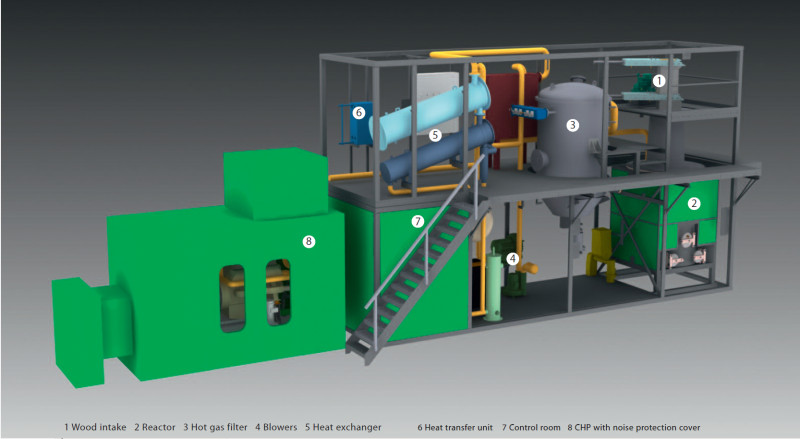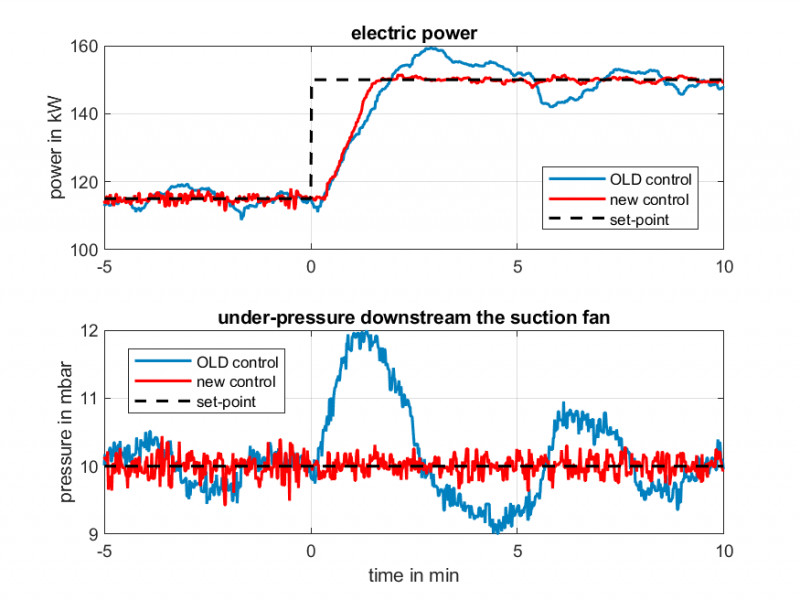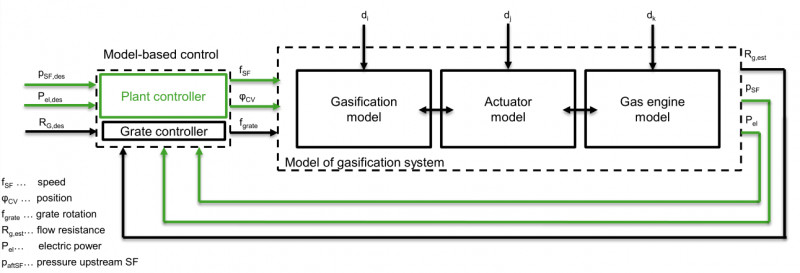FlexiFuelGasControl
Due to increased efforts to reduce CO2 emissions, the utilization of biomass for energy purposes has gained in importance in the last two decades. In research and development, there has been a strong focus on the gasification of biomass. In this process, the renewable biomass is first gasified in a technical process and the resulting product gas is then further used to provide electricity and heat. For plants in the small power range (less than 1 MW fuel capacity), the technology of fixed-bed gasification is of particular importance. It offers the possibility for combined production of electricity and heat (cogeneration) with high efficiencies and lowest possible pollutant emissions in a power range in which there are no equivalent solutions even from the side of the well-established biomass combustion. However, strict fuel property requirements limit the robust-practical application of state-of-the-art biomass fixed-bed gasification systems. In addition, limitations in load modulation represent further barriers on the path to sales market expansion. In order to increase the fuel flexibility as well as the load modulation capabilities of fixed-bed gasification systems, a significant improvement of the applied control strategies is required. The most promising approach is a model-based control strategy that considers all the interconnections and non-linear correlations between the various process variables in the gasifier.
In the project FlexiFuelGasControl, such a model-based control strategy for biomass fixed-bed gasifiers was developed with the purpose of improving fuel flexibility and load modulation capability.
The model-based control system was developed to run an operating system. It can be used in a power range from 110 kW to 150 kW and consists of two sub-controllers, a power control and a grate control. These were implemented at an exemplary and representative industrial biomass fixed-bed gasification plant and subsequently verified experimentally. It was shown that the load modulation capability of the fixed bed gasifier could be significantly increased and improved by the power control.
The improvements enable faster and more robust changes in the electrical power output, thus causing an increase in the economic efficiency as well as the competitiveness of the biomass fixed-bed gasifier. Due to its modularity, the control system can also be implemented on additional plants.
Projektvolumen
EUR 570.389,--
Projektlaufzeit
2017-03-01 - 2021-02-28
Supported by
FFG, Bridge - Frühphase 4. Ausschreibung
Projektpartner






